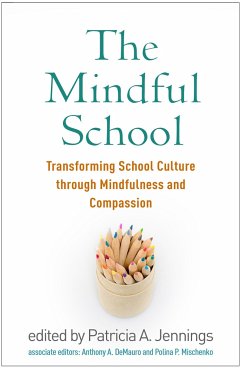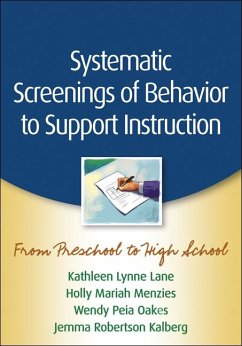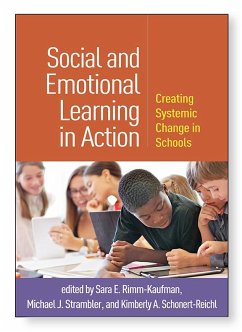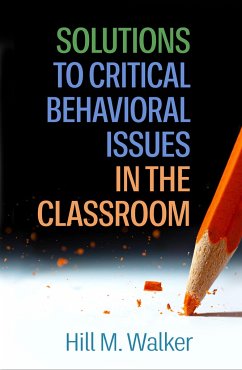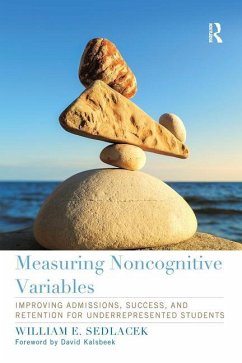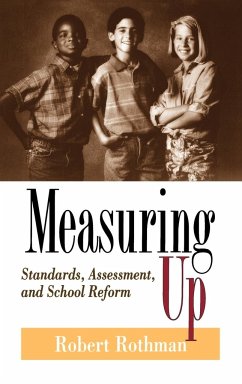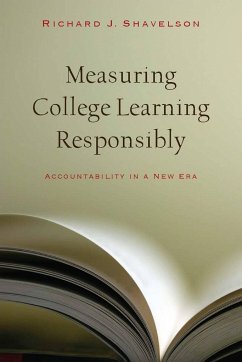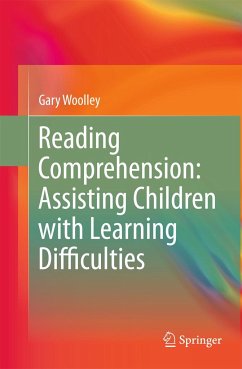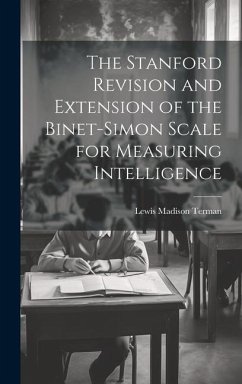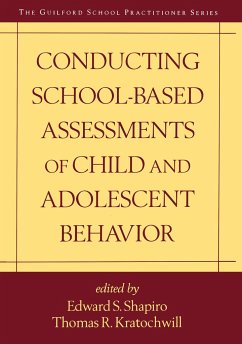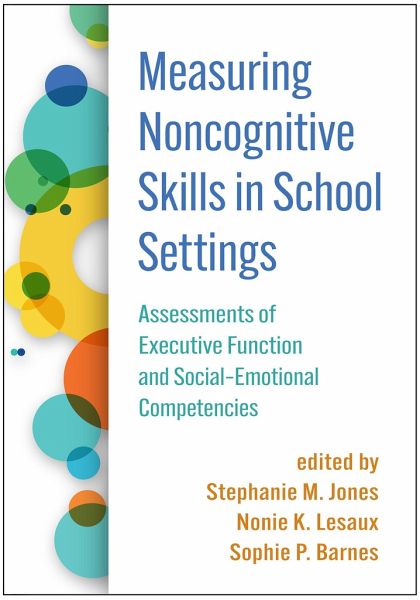
Measuring Noncognitive Skills in School Settings
Assessments of Executive Function and Social-Emotional Competencies
Herausgeber: Jones, Stephanie; Barnes, Sophie P; Lesaux, Nonie K
Versandkostenfrei!
Versandfertig in über 4 Wochen
69,99 €
inkl. MwSt.

PAYBACK Punkte
35 °P sammeln!
How can educators determine the most effective approaches for measuring students' social-emotional and self-regulation skills? And how can they use the data to improve their own practice? This book brings together leading experts from multiple disciplines to discuss the current state of measurement and assessment of a broad range of noncognitive skills and present an array of innovative tools. Chapters describe measures targeting the individual student, classroom, whole school, and community; highlight implications for instructional decision making; examine key issues in methodology, practice,...
How can educators determine the most effective approaches for measuring students' social-emotional and self-regulation skills? And how can they use the data to improve their own practice? This book brings together leading experts from multiple disciplines to discuss the current state of measurement and assessment of a broad range of noncognitive skills and present an array of innovative tools. Chapters describe measures targeting the individual student, classroom, whole school, and community; highlight implications for instructional decision making; examine key issues in methodology, practice, and policy; and share examples of systematic school- and district-wide implementation.



